In Search of the Best MBA Internships in the Bay Area
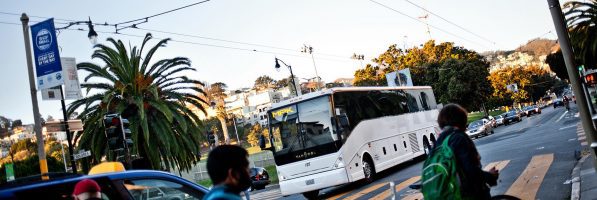
It’s not just the entrepreneurship and technology boom of the past thirty years that has brought San Francisco into prominence as a major city for business. In fact, the city’s legacy as a center for banking and finance can be traced all the way back to the years of the gold rush. From it’s nickname as the “Wall Street of the West” to its role today as a hub for technology and social media companies, San Francisco has long been a city where young business professionals can thrive.
MBA programs in the metro offer opportunities for students to connect with local organizations through Bay Area internships and corporate partnerships. These internship opportunities, the majority of which are arranged through campus recruitment or university networking, frequently open the door for full-time employment and ongoing career training. Below, we’ve rounded up just a few of our favorites.
The Best Bay Area Internships for MBAs
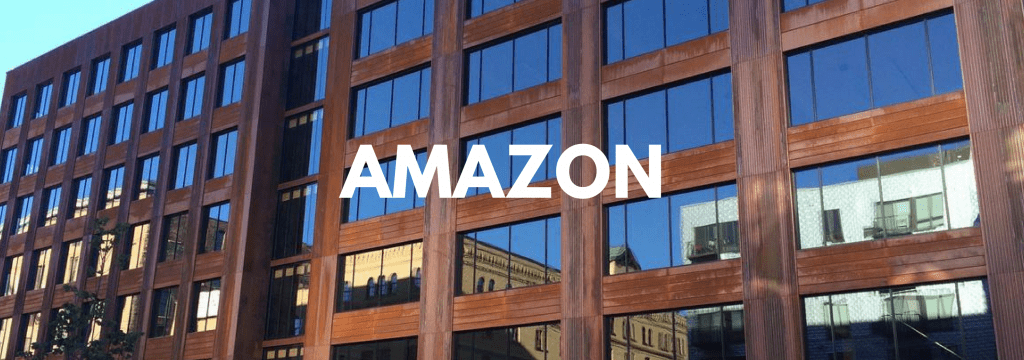
Amazon consistently makes the lists of top employers, both for full-time positions and summer internships, for graduates from universities like the UC Davis Graduate School of Management, SJSU’s Lucas Graduate School of Business, and the Haas School of Business at UC Berkeley.
This likely doesn’t come as a surprise. With an extensive reach into the retail, tech, and entertainment industries, Amazon has made headlines in the past years for its vigorous hiring of MBA students and graduates. In 2015, the company was the number one employer for graduating MBA students, and it doesn’t look like that trend will change any time soon.
Amazon has hired more Haas MBAs for employment and internships than any one company has in recent history (33 in 2017). There are also currently 165 Haas alumni already working at the company, who continue to play a large role in the recruitment and onboarding process for new hires.
One reason that might explain the staggering number of Haas MBAs joining Amazon is the company’s vigorous recruitment process, which begins early in fall and provides practice for case interviews. According to MBA alum Carolyn Chuong, now a Senior Product Manager at Amazon, the Amazon corporate culture and Berkeley’s academic philosophy are a good fit for each other.
“Haas and Amazon have cultures that value feedback,” she said.
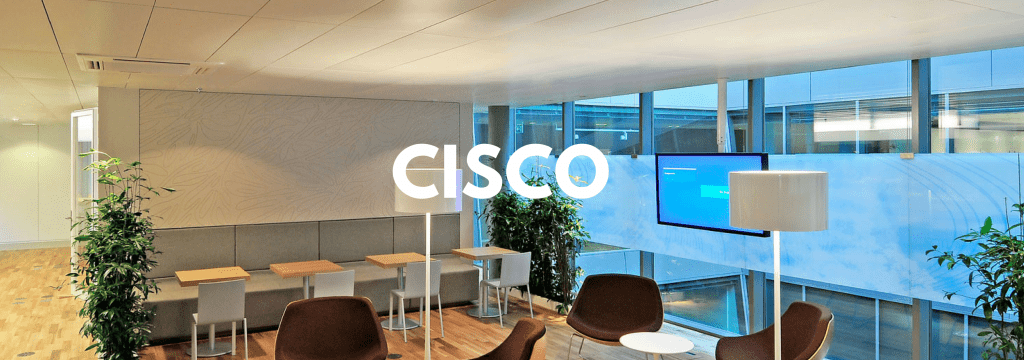
San Francisco’s role today as a hub for technology may help explain why Cisco Systems, an American multinational technology company headquartered in San Jose, is one of the top internship destinations for MBA students at schools like Haas, SJSU, and the University of San Francisco School of Management.
For students both in and out of the tech fields, Cisco offers internship opportunities in fields like marketing, security, supply chain, operations, human resources, and more. Schools like the San Jose State University even offers special opportunities through their corporate partnership with Cisco, such as a unique MS Software Engineering, specialization in cybersecurity available only for employees.
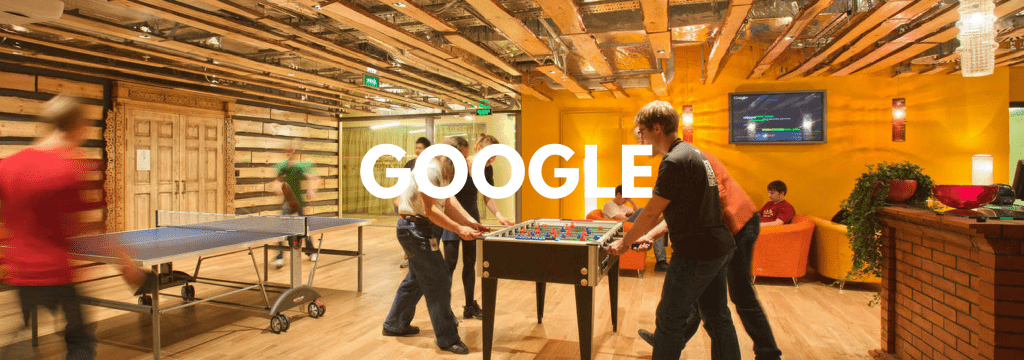
Listed in 2017 as the most visited website in the world, Google seems to have no limits to how far the company might grow. Headquartered in Mountain View, California, Google now employs more than 85,050 people around the globe. Talented MBAs who can break into the company can make, on average, nearly $6,000 per month as an intern, not to mention attractive benefits like free food, gym membership and transportation. Simply put, a stop at Google is one of the most attractive Bay Area internships out there.
Not surprisingly, Stanford University Graduate School of Business and Berkeley Haas have the most alumni currently with Google. San Jose State University and UC Davis grads are also prolific at the company, among other top schools like Cornell, Harvard, and MIT. Landing an internship at Google can be an incredibly challenging process. With high rates of alumni from California schools working at the company, students can leverage their university’s professional network to make connections and get their foot in the door.

Tesla, a multinational corporation specializing in renewable energy, offers a large number of internships and co-ops for MBA students. With its headquarters in Palo Alto, CA, and a commitment to taking on some of the world’s most important problems, it’s understandable why students at schools like USFCA, UC Davis, and SJSU seek out internship opportunities with the company.
“My experiences as a Tesla intern are some that I will take with me for the rest of my career,” one Tesla intern said on her experience. “I had the opportunity to tackle problems that were challenging, unique, and relevant—and within several weeks, I was trained to weigh in on decisions that would affect an entire production line.”
According to Tesla, interns and co-ops will be matched with teams and projects based on their background and career goals. Many Tesla interns have returned to the company in a full-time role after graduation.
HBS Reviews Elon Musk’s Compensation Plan, and More – Boston News

In case you missed it, let’s explore some of the most interesting stories that have emerged from Boston business schools this week.
Elon Musk’s Unusual Compensation Plan Isn’t Really About Compensation at All – Harvard Business Review
Harvard Business School faculty member George Serafeim, the Jakurski Family associate professor of business administration, recently published his insight into the compensation package Tesla shareholders awarded CEO Elon Musk this year—“likely the largest compensation package ever awarded to a CEO.”
Serafeim argues that the design of the compensation plan and its announcement were about “signaling a credible commitment to Tesla’s purpose: to become a clean energy giant that helps address climate change by transforming mobility. To get there, Musk needs not only the normal sort of investor confidence, but also for investors to buy into his radical vision for the company.”
Serafeim further explains:
“Musk’s compensation plan, with its ambitious targets for market capitalization, focuses the mind on exactly this vision. For Tesla to reach a $650 billion valuation by 2028, the market will have to shift dramatically, with electric vehicles becoming the overwhelming percentage of all new sales. That would boost Tesla revenues from both vehicles and batteries. Such a future would also likely require that Tesla’s autonomous pilot technology becomes state-of-the-art, allowing it to be used safely and widely in Tesla vehicles but also potentially through licensing by other players.”
You can read more about Serafeim’s insight here.
Finance by Day, Pro Soccer by Night – Carroll School of Management News
The Boston College Carroll SOM recently profiled Issey Maholo ’07, a polymath who spends his days as VP of prime brokerage for J.P. Morgan and his nights as goalie for the Hong Kong Football Club.
Maholo, a native of Tokyo born to a Congolese father and Japanese mother, writes, “There will be plenty of excuses you can make in life as to why you should stop doing what you love to do.” He also notes the parallels between his vocation and avocation, particularly when it comes to teamwork:
“One person can shape a game, but usually not a whole season. It’s the same in finance—someone can bring in a big mandate, but you all have to pull together to become the top bank in Asia.”
You can read more about Maholo here.
The Quest for Error-Free Care – Sawyer Business School Blog
The Suffolk University Sawyer Business School recently hosted a panel discussion sponsored by the Suffolk University Chapter of the Institute for Healthcare Improvement (IHI), which touched upon “trends in the industry, patient safety, how the patient experience has improved over the decades, job-hunting advice, and many other subjects.”
The talk featured three Boston health care leaders: Lahey Hospital and Medical Center Chief Quality and Safety Officer Dr. Judith Melin; Mass General Hospital Associate chief quality & safety officer Mary Cramer; and Professor Elizabeth Turner, a nurse-attorney whose practice focuses on health care law.
Professor Mona Al-Amin, faculty adviser to the IHI group, writes, “The importance of this event was that students learned about quality improvement in healthcare organizations. They also got to ask questions about the field. And they got to learn about career choices and what skills they might need.”
You can read all the takeaways from the discussion here.
How to Turn an MBA into a Career with Tesla
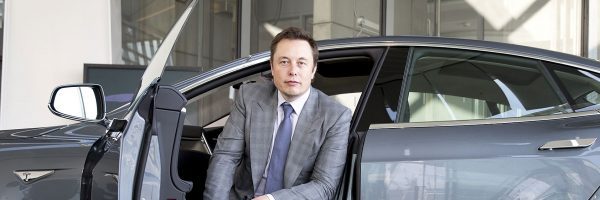
Tesla, Inc. founder and the tech entrepreneur world’s newest shining beacon Elon Musk, a graduate of the Wharton School at the University of Pennsylvania, once pessimistically said, “As much as possible, avoid hiring MBA’s. MBA programs don’t teach people how to create companies … our position is that we hire someone in spite of an MBA, not because of one.” Continue reading…
Haas Sharing Economy Study Explores How Manufacturers Can Adapt

New working research from the Haas School of Business at UC Berkeley suggests that the sharing economy might actually be more beneficial to manufacturers than previously thought.
Professor Spotlight: Greg Autry, USC Marshall
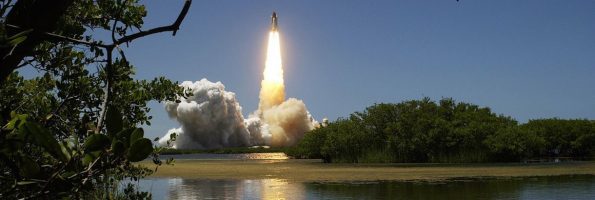
An MBA program’s professors are an integral part of the business school experience. That’s why rankings such as The Financial Times include faculty research and publications as a major indicator of program quality, and one of the reasons we post regular faculty spotlights. This week, we’re shining the spotlight on Greg Autry, a USC Marshall Assistant Professor of Clinical Entrepreneurship. Autry was recently appointed to President Trump’s transition team for NASA. Continue reading…
Quinlan Prof Outlines Entrepreneurial Tips For the New Year

With a new year comes new opportunities for entrepreneurs to burst onto the startup stage and being innovating. April Lane, an entrepreneurship professor from the Loyola Quinlan School of Business, wants to help make that happen for you. Continue reading…
